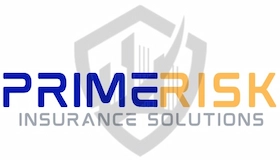As a contractor, your toolkit is your lifeline, but unexpected events can put your precious gear at risk. That’s why a robust insurance policy, tailored to protect your property, tools, and equipment, is vital to keep your operation humming along without a hitch. The right insurance can be a safety net, transforming a potential disaster into a manageable hiccup. In this article, we’ll delve into what contractors‘ equipment insurance has to offer, so you understand how it can shield your business from surprise costs and downtime. Keep reading to find out the essentials of this contractors equipment insurance and how it keeps your tools and livelihood secure.
Contractors Equipment Insurance Coverages
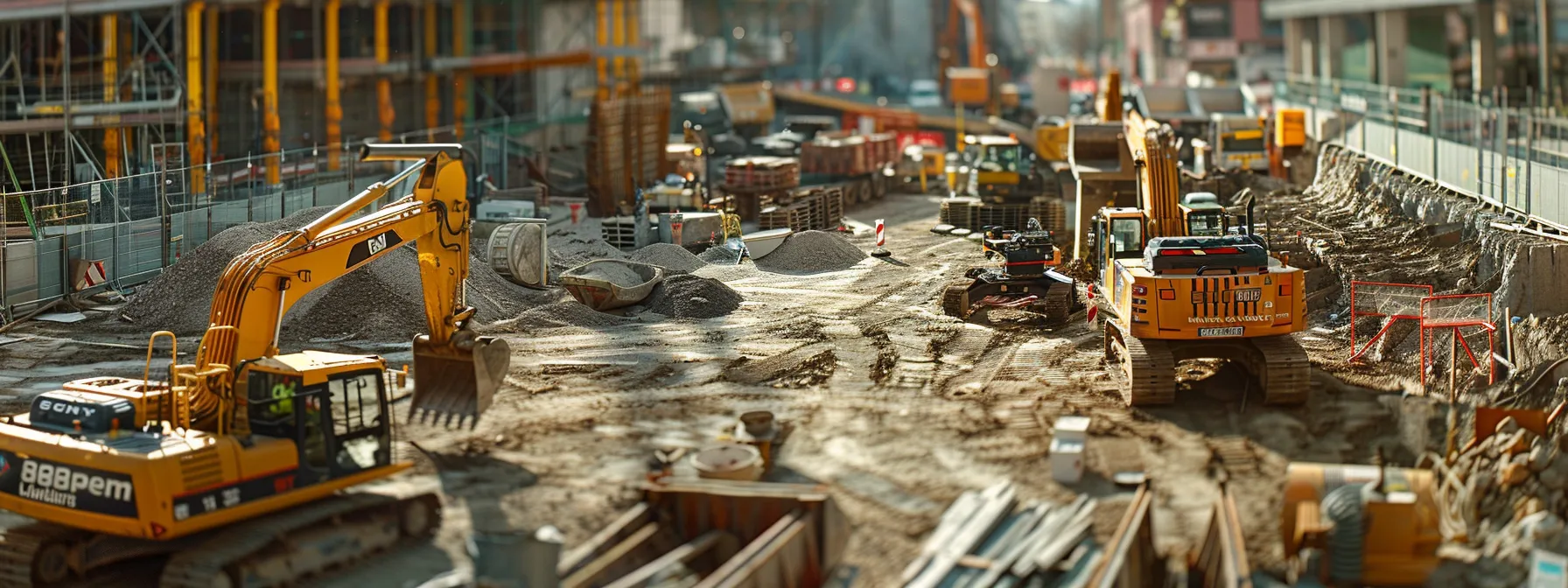
I’ve seen my share of mishaps on job sites and let me tell you, having the right liability insurance is no joke. It’s like a safety net for when things go sideways, and they sometimes do, since it covers you for damages or injuries your equipment might cause. Without it, you’re looking at some serious out-of-pocket expenses that can really throw a wrench in your budget.
Getting an insurance policy that’s a perfect fit for your contractor gear means paying attention to the fine print. It’s not about shelling out for the priciest option, but making sure it covers the essentials. I like to think of it as customizing a toolbox – you want every tool to fit your needs perfectly.
Did you know that contractor equipment often needs marine insurance too? Yeah, it’s not just for ships and boats. It covers you when your tools and machinery have to travel over water. Whether it’s a short ferry ride or a longer haul, this kind of insurance makes sure your stuff is protected from the get-go until it’s back on dry land.
Another thing to consider is property insurance, which is different from vehicle insurance. Property insurance is about protecting the place where you store your gear, and it kicks in if something like a fire, theft, or vandalism happens. Vehicle insurance, on the other hand, is for your transportation – the rides that get your machinery from point A to point B without a hitch.
Contractors Equipment Insurance Target Clients
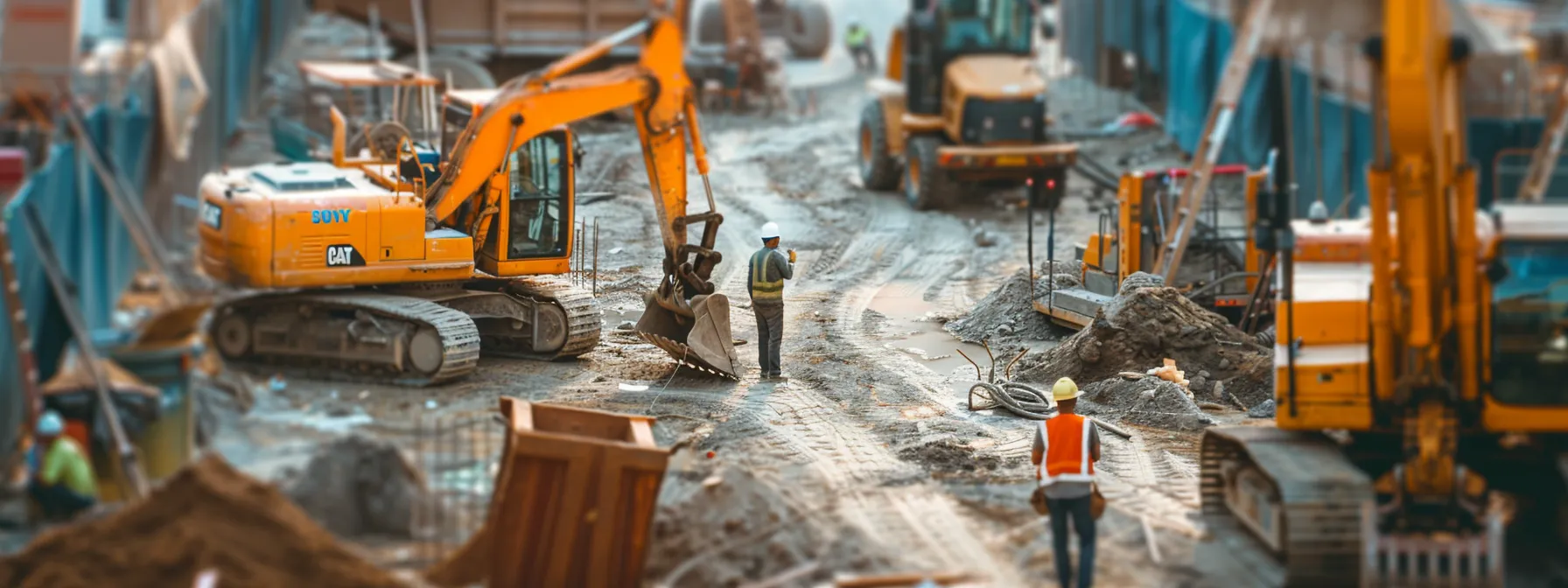
Okay, so picture yourself running a business that deals with heavy equipment. You’ve got excavators, loaders, bulldozers – the works. Now, if your job site’s hit by a flood, we’re talking major stress unless you’re backed up with solid insurance. It’s total peace of mind to know that even if nature goes wild, you won’t be left in a financial sinkhole.
I’ve chatted with folks who run equipment rental businesses and it’s clear – they sleep better at night knowing they’ve got proper insurance. Clients borrow their gear, and sometimes things go south. Accidents happen, gear gets damaged. With a robust insurance plan, they’re not sweating over repair costs because they’re covered.
Now, consider an individual contractor with a beloved excavator. That thing is their bread and butter, so they cherish it like a family member. They’re smart to focus on a policy that’s all about replacement value. No beating around the bush here; they want a guarantee that if their equipment gets totaled, they can get a new one without a financial meltdown.
Lastly, I’ve seen too many hardworking contractors take a hit because they didn’t think about the smaller stuff – the tools and tech that don’t seem like a big deal until they’re gone. That’s why I always nudge them towards an insurance plan that covers the full spectrum, down to the last wrench or sensor. Cover everything, and I mean everything, to avoid headaches down the road.
Contractors Equipment Insurance Submission Requirements
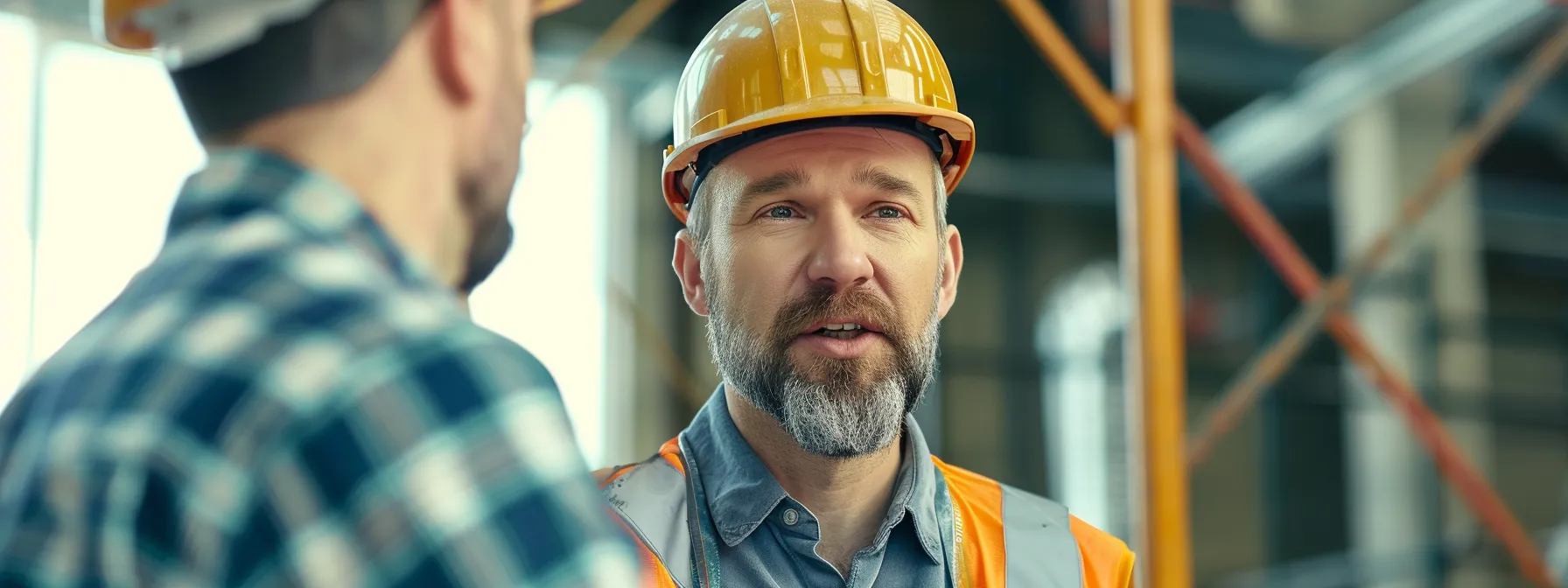
So, you’re eyeballing a contractors equipment insurance policy—it’s time to talk about the underwriting process. Essentially, we’re assessing the potential risk your equipment could run into—everything from water damage to an unforeseen theft. We’re not just looking at the big-ticket items; every piece of gear matters.
Take water damage; it’s sneaky and can wreak havoc on your tools before you even notice something’s amiss. When I’m filling out my application, I make darn sure to have all the details about my equipment‘s exposure to the elements. It helps the insurance folks calculate how much my premium should be and, trust me, it’s better to be upfront than get caught in the rain later.
Bumping into a client who’s been hit by theft is always tough; it’s like a gut punch to their business. That’s why I always stress the importance of disclosing security measures when seeking insurance, especially for high-value items. Our underwriters need to know how you’re protecting your investment, so they can provide a quote that feels like it’s got your back.
Lastly, a word of advice: don’t overlook the significance of commercial property while discussing your insurance needs. If you’re like me, working with reinsurance helps in knowing that even if something catastrophic happens, there’s a backup plan. It’s a layer of financial safety for your gear that’s hard to pass up.
Contractors Equipment Insurance Benefits
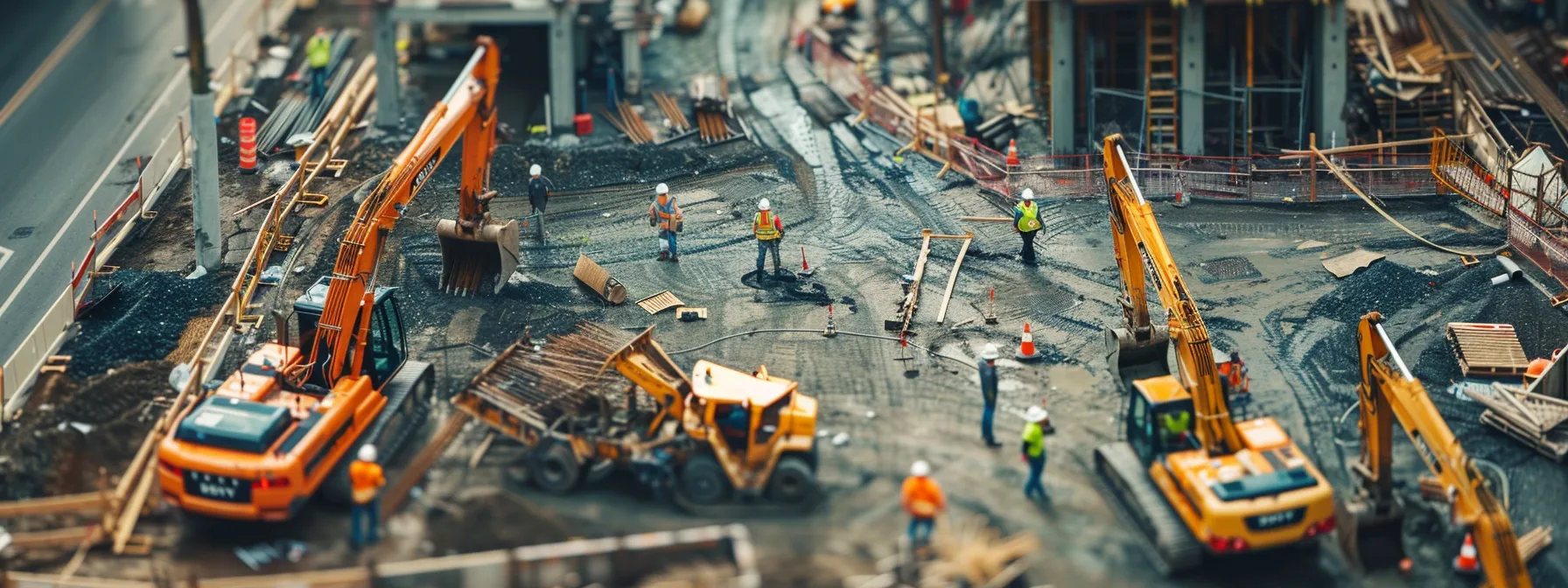
You know, being an electrician, I’m often threading the needle between safety and risk. The right insurance is my fallback when there’s an accident; it’s not just about fixing what broke but also having the coverage to handle the fallout without losing sleep.
Last summer, I watched a crane hoist massive concrete slabs sky-high, and boy, did it get my heart racing. One misstep and we’re talking chaos, but with a solid insurance plan, even these heavy lifters are backed up financially, which is a relief to anyone in construction.
I’ve seen concrete mixers topple over—it’s a messy and costly hiccup. Thankfully, insurance for contractors equipment can cover damage to the gear, and it cushions the impact an accident has on business continuity. It’s like wearing a hard hat for your wallet.
And think about those days when you’ve got more construction projects than you can shake a stick at. Having insurance takes one big worry off the plate; it means if there’s a hiccup or, heaven forbid, a major mishap, you’re not stuck holding the bill for all that pricey gear on your own.
Comprehensive Coverage to Protect Business Equipment
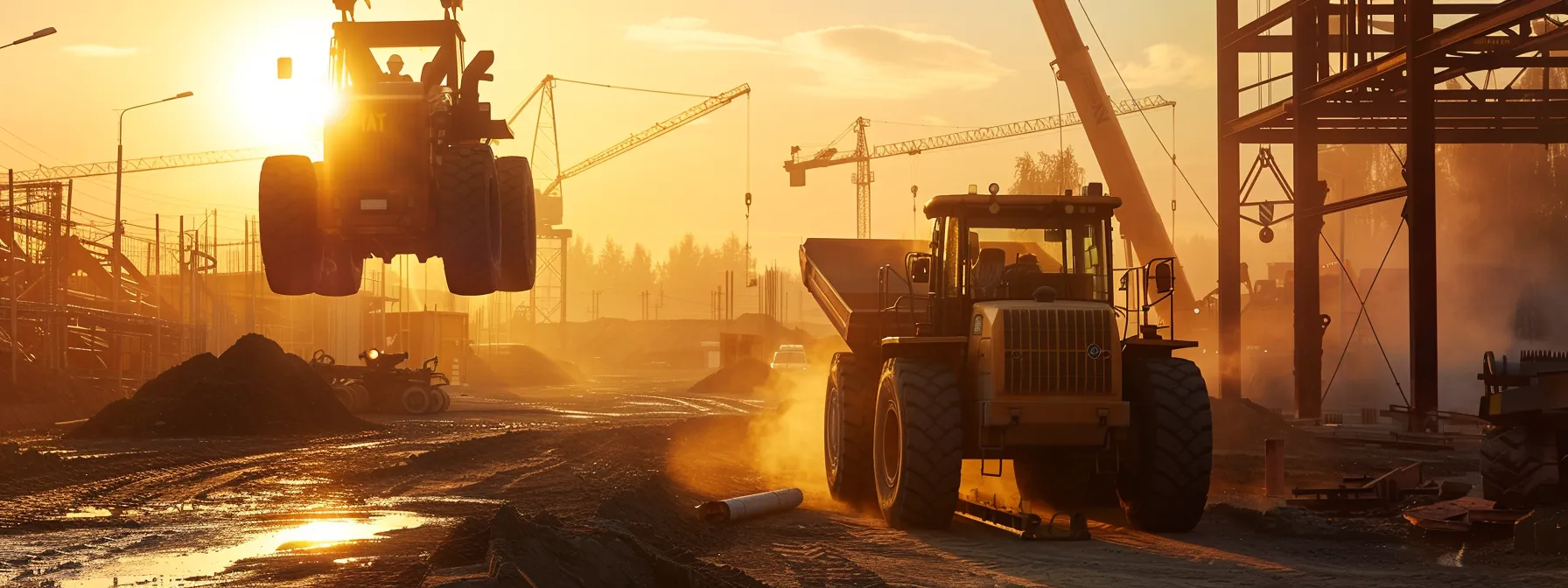
When you’ve got a loader lifting tons of dirt at the crack of dawn, you want to make sure it’s covered by insurance that can handle the heavy lifting too. The last thing you need is an accident with that beast that leaves you scrambling to cover the costs.
I’ve learned that choosing a policy with a manageable deductible is key. That way, if something goes sideways, I’m not stuck with a sky-high bill before the insurance even kicks in – that’s huge for my peace of mind and budget.
During a lease, the last thing you want is to get dinged with repair bills for equipment that isn’t even yours. That’s why having a policy that covers the actual cash value ensures I’m not on the hook for more than the equipment‘s worth if disaster strikes.
Also, nobody wants to get tangled up in legal liability because of faulty or damaged machinery. Proper coverage means I can breathe easy knowing that if my equipment causes an accident, I’m not left to fend for myself in legal battles or with compensation issues.
Contractors‘ Equipment Insurance Coverage
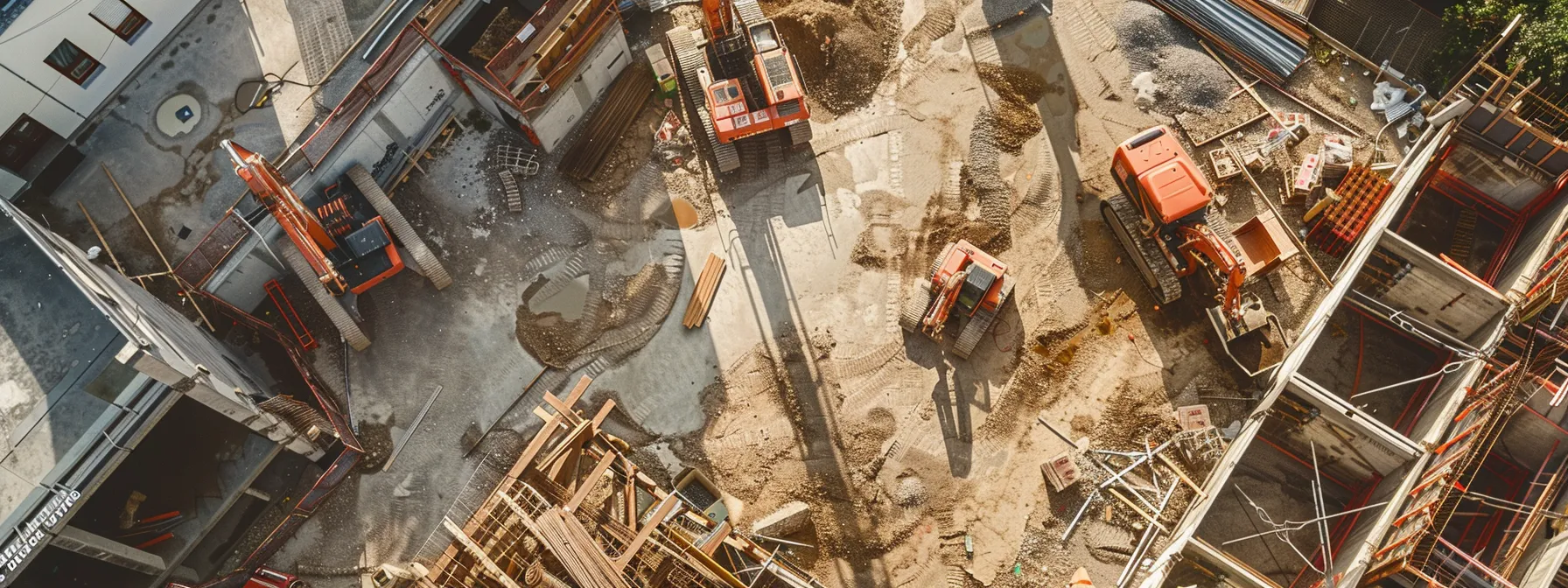
If you’re in the construction game, you know that every project is a symphony of moving parts, and insurance that sings to the tune of your needs is non-negotiable. Take installation – whether we’re talking about the precision required for delicate electronics or the sheer grunt work of setting up concrete pipelines, there’s no room for compromise. With all the cargo moving through a site, I’ve seen a forklift become an accidental bull in a china shop, and it’s moments like those when your insurance needs to carry its weight. Now, in my line of work, securing contracts means ensuring that my employment practices are above board and that I’ve got builders’ risk coverage in my back pocket. It’s not just about the heavy lifting; equipment breakdown coverage is the unsung hero that steps in when, say, a pump decides to call it quits at the worst possible time. Trust me, good insurance isn’t just a safety blanket, it’s the steel in the spine of your construction business.
Installation
During installation, the whirl and buzz of each machine is a reminder that mishaps lurk at every corner. With vandals or unexpected malfunctions posing a threat to my gear, having Liberty Mutual on my side means I’m backed by risk management that understands the stakes of my company.
Ensuring my installation processes are secured against damage gives me the freedom to focus on the build at hand. I rely on comprehensive coverage; it’s the backbone of my operation, guaranteeing that every twist, turn, and placement is free from the anxiety of potential financial setbacks.
Builders’ Risk
In the thick of a build, the last thing I want to think about is my truck getting sideswiped by accidents or falling prey to weather damage. Builders’ risk insurance wraps my vehicle in a layer of protection, shielding me from those unexpected costs that arise from wear and tear on the job site.
Renting out my gear grants me the flexibility my business craves, but it also opens the door to unique risks, like a client returning my equipment with more than just a few scrapes. That’s where builders’ risk insurance comes in, covering the gear like a trusty piece of clothing, making sure I’m not out a ton of cash for repairs.
Equipment Breakdown Coverage
Imagine this: you’re on a tight deadline and your trusty air compressor decides to quit on you. That’s when equipment breakdown coverage steps in, covering the costs that come with repair or replacement. This type of insurance considers the engine‘s current state and factors in depreciation, so I’m not left high and dry with outdated equipment or an unfair settlement.
I’ve always found comfort knowing that the gear rolling off my business auto policy is safe, even when mechanical gremlins hit. Choosing this option for my insurance plan means I don’t have to sweat the small stuff. If an engine fails or an essential piece of machinery goes kaput, I’m covered, and my projects keep moving along without a glitch.
Construction
Rolling into a new construction site on Monday morning, it’s clear how much rides on having rock-solid equipment insurance. From the smallest drill to the largest crane, every piece is vital. If a piece of my equipment falls victim to vandalism or a mechanical hiccup, knowing that an expert agent has my back offers an extra layer of confidence to tackle the week’s challenges.
Finding the right agent to help navigate the complexities of equipment insurance took time, but it paid off. They helped tailor a plan that keeps my equipment – the lifeblood of my business – secure from all sorts of job site snags. With the right protection in place, I can focus on the build without fretting over what ifs and maybe’s.
Who Is Contractors‘ Equipment Insurance Right For?
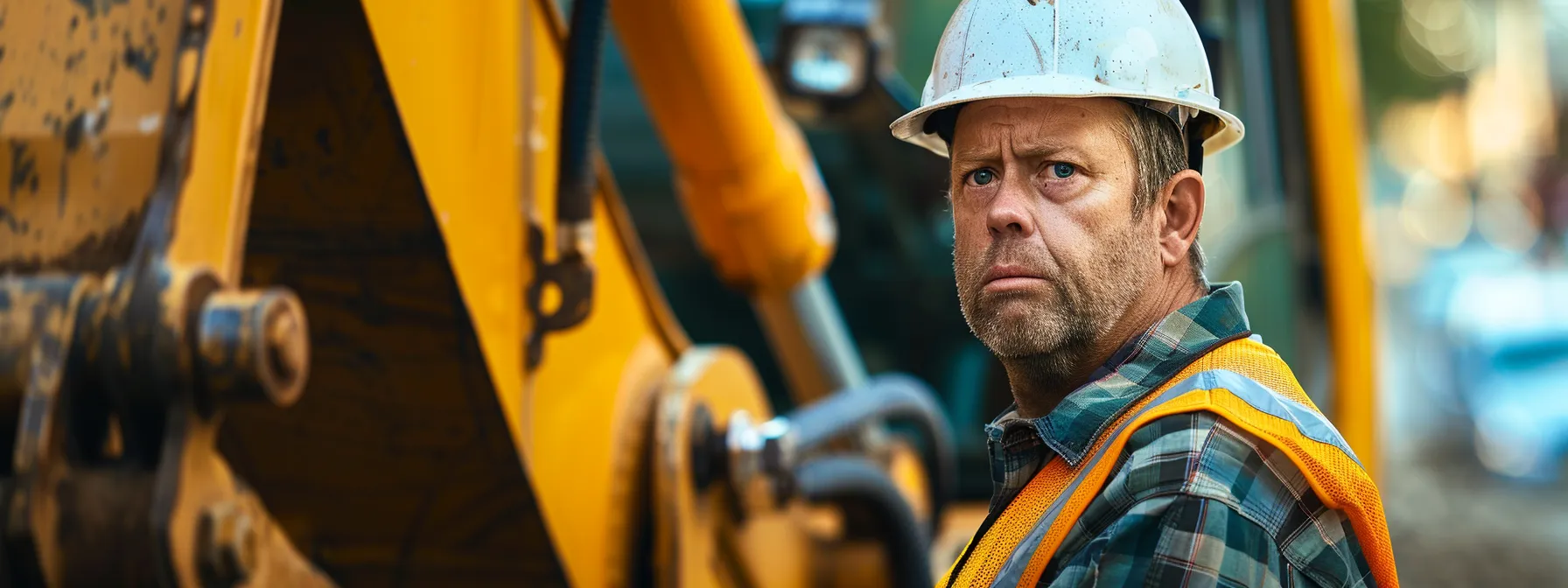
If you’re juggling an inventory of heavy-duty equipment like backhoes and trenchers, then contractors‘ equipment insurance should be on your radar. Trust me, replacing a backhoe out of pocket is a financial nightmare you don’t want to wake up to.
Having all your gear insured means that when an unexpected issue arises, the insurance company handles the payment, not your business account. It’s a lifesaver when you’re already balancing tight budgets and project deadlines.
For those in the manufacturing sector with a vast array of machinery, detailed information on each item can be tedious to compile. But it’s gold when you’re applying for insurance—it ensures every bolt and circuit is accounted for.
And anyone who knows the sinking feeling of having their equipment breakdown mid-job, understands the value of a quick insurance payout. It’s all about keeping the machinery—and your business—running like clockwork.
Does Business Equipment Insurance Cover Theft?
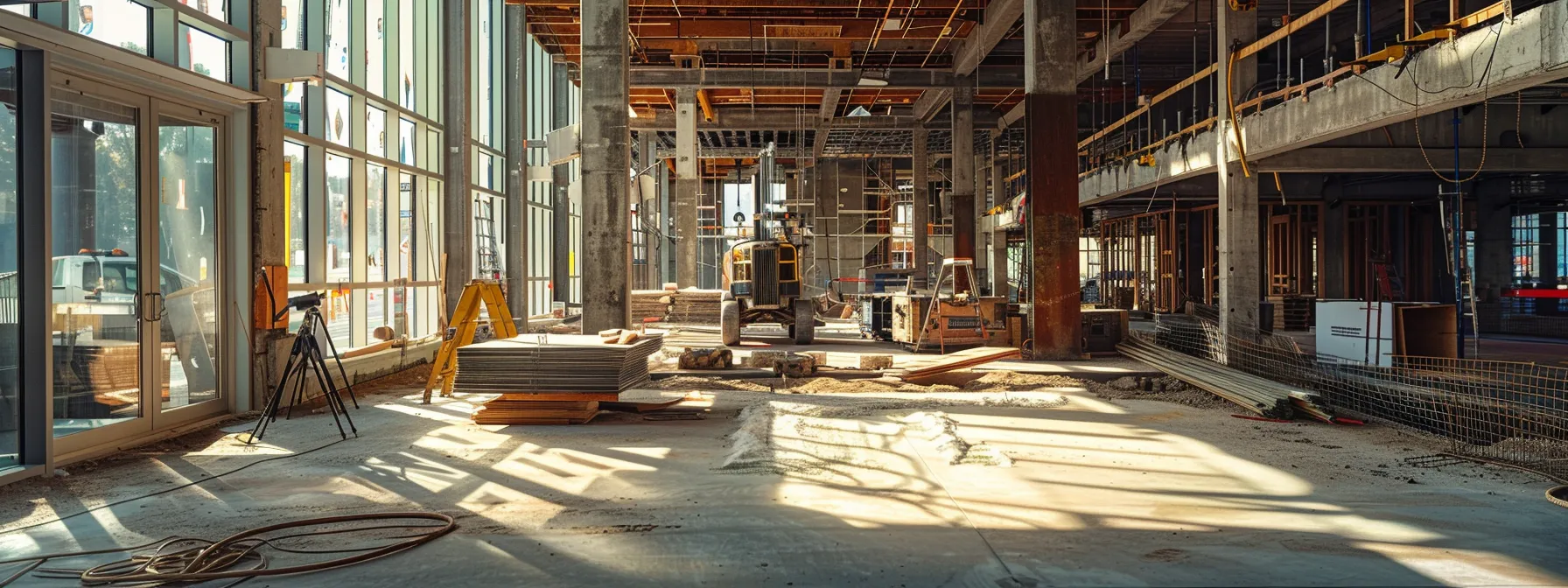
So, let’s talk theft coverage. I remember the sinking feeling when a buddy told me about his stolen backhoe—ouch. Good news, though, your inland marine policy often covers theft, giving you a safety net when sticky fingers hit the job site.
It’s not just about the missing gear; the downtime can knock the wind out of your business. Thankfully, my commercial property insurance includes theft, so when my tools went AWOL, I wasn’t left pleading with the insurance company for coverage. They just sorted it out.
Every smart contractor knows that a solid business insurance plan needs to handle more than just accidents. When I lay my head down at night, I rest easy knowing that if my work-site lockbox gets cracked, the loss won’t come out of my pocket.
Here’s the deal—building a relationship with an insurance company pays dividends. As their customer, they’ve got my back, ensuring that if my gear gets pinched, they’ve got the reimbursement side of things covered.
Conclusion
Proper insurance is vital for contractors as it acts as a financial safety net, covering damages and ensuring continuity when equipment fails or accidents occur. It offers the security of replacement or repair without crippling costs, protecting not just the big machines but every last tool that’s essential for your trade. Whether you face theft, natural disasters, or equipment breakdown, a tailored insurance policy provides peace of mind, allowing you to focus on your projects. In essence, contractor equipment insurance is an investment in your business‘s resilience, safeguarding your gear and your livelihood against unforeseen events.
